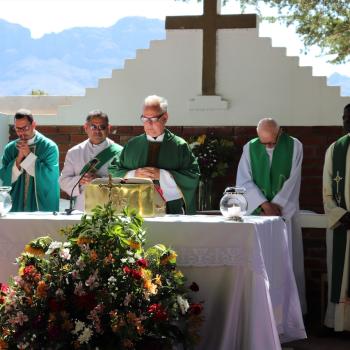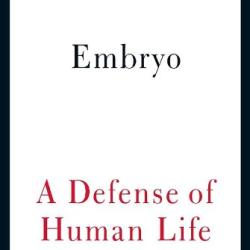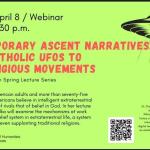Vatican City, Oct 12, 2017 / 06:36 am (CNA/EWTN News).- On Thursday Pope Francis told members of the Pontifical Oriental Institute and various Eastern Churches that they have a mission for peace and reconciliation, and that if we are courageous in prayer, God will answer, giving us the gift of the Holy Spirit. “Here is the true gift of the Father. Man knocks with prayer at the door of God to ask for grace. And he, who is Father, gives me that and more: a gift, the Holy Spirit,” the Pope said Oct. 12. “That which the Lord, the Father, gives us more of is the Spirit.” In his homily, the Pope reflected on the promise of prayer through which God bestows his gifts, stressing that when we pray, we need the courage of faith. We must have “confidence that the Lord listens to us, the courage to knock at the door,” just as Jesus says in the day’s Gospel, he said, quoting the text: “For everyone who asks, receives; and the one who seeks, finds; and to the one who knocks, the door will be opened.” However, posing a series of questions to participants, the Pope asked is our prayer really courageous? Does it involve our entire selves, our heart and our life? Do we know how to knock at God’s heart? We must “learn to knock on the heart of God! And we learn to do it courageously,” he said. And this brave prayer should inspire us and nourish us in our service to the Church, leading our commitment to grow and develop, giving “fruit at its own time” as the day’s Psalm said. At the end of the Gospel passage from Luke, the Pope pointed out that Jesus says no father, when his son asks for a fish, gives him a serpent. Or when asked for an egg, hands his child a scorpion. Jesus goes on to say that “if you, therefore, who are bad, know to give good things to your children, how much more your heavenly Father...” The Pope said we expect Jesus to continue by saying that he will give us good things, but “he does not say that! He says: He will give the Holy Spirit to those who ask him. That is the gift that is the ‘more’ of God.” Pope Francis celebrated a special Mass Oct. 12 at the Basilica of St. Mary Major in Rome for the celebration of the 100th anniversary of the founding of the Congregation for Oriental Churches and the Pontifical Oriental Institute in 1917 by Pope Benedict XV. Before Mass, he greeted superiors of the congregation, patriarchs and major archbishops. He then blessed a cypress tree in the garden of the Pontifical Oriental Institute building, afterward meeting with benefactors and the Jesuit community. In a message addressed to Cardinal Leonardo Sandri, prefect of the Vatican's Congregation for Oriental Churches and Grand Chancellor of the Pontifical Oriental Institute, Pope Francis greeted members of both entities. He highlighted major events in the founding and history of the congregation and institute, explaining that his predecessor, in founding them, “wanted to draw attention to the extraordinary richness of the Eastern Churches.” Even in the midst of the “turbulent” First World War, Benedict XV reserved “special attention to the Churches of the Orient.” Now, we must look toward the “future mission” of the congregation and institute, he said, noting that at the beginning, there may have been some confusion about the balance between study and pastoral work of the institute. But today, he continued, this conflict does not and should not exist: it's not about ‘either/or,’ he explained, but ‘both/and.’ He invited the professors to place their scientific commitments “in first place,” based on the example of their predecessors, whom he said distinguished themselves with their scholarly contributions and editions of liturgical, spiritual, archaeological and canonical sources. While many are aware of the contributions scholars have made in these areas, the Pope said that now, as it was 100 years ago, we again find ourselves in challenging times, with war and hatred attacking “the very roots of peaceful coexistence in the persecuted lands of the East.” The institute is again at the center of a “providential crossroads,” Francis said, and encouraged members to maintain their long tradition and attention to research, but also to listen to the challenges and experiences of students during this difficult time. With the collapse of totalitarian regimes and various dictatorships, and the rise and spread of international terrorism, Eastern Christians are experiencing a time of persecution and worry, he said, and “in these situations nobody can close their eyes.” The Oriental Institute is called to listen in prayer to what the Lord wants “at this precise moment,” he said, and in coherence with the three wise men, they must “seek new ways to go.” Many of the students and professors are experiencing this important moment in history, he said, and the Oriental Institute, “through research, teaching and testimony, has the task of helping our brothers helping our brothers and sisters to strengthen and consolidate their faith in the face of the tremendous challenges they face.” The institute can be a place of formation for seminarians, priests and laity, giving them hope so that they can collaborate and cooperate with Christ’s reconciling mission, he said. He noted that the Pontifical Oriental Institute has an ecumenical mission in relation to the various Eastern Churches, with which we are still journeying toward full communion. The way the institute can carry out this ecumenical mission, he said, is by fostering good relations with the Eastern Churches, collaborating on important issues, and devoting thorough study to the problems and questions still dividing Rome from the East. However, he stressed that this work must be in the knowledge that everything happens in the Lord's time and manner. Francis said the institute is also in a good position, with the trust of the many students of the non-Catholic Eastern Churches who attend, to “make known the treasures of the rich traditions of Eastern Churches in the Western world, so that they are understandable and can be assimilated.” Concluding, Pope Francis bestowed his apostolic blessing on participants, giving thanks for the work of the Pontifical Oriental Institute over the last 100 years. He also voiced his hope for the continued pursuit of its mission, which he said is to study and spread “with love and intellectual honesty, with scientific rigor and pastoral perspective, the traditions of the Oriental churches in their liturgical, theological, artistic and canonical variety.” This mission, he said, also involves responding “better and better to the expectations of today's world to create a future of reconciliation and peace.” Read more




















